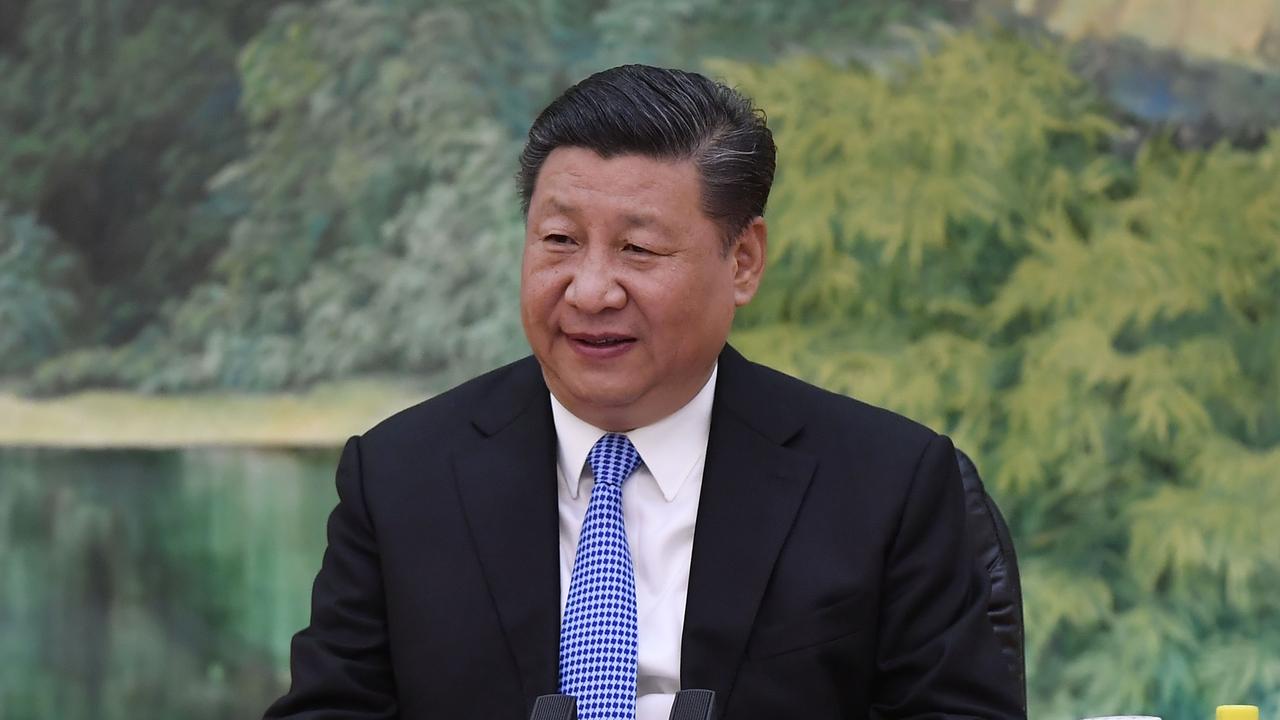China is waging a ‘campaign of psychological warfare' against Australia, expert warns
CHINA is waging a “campaign of psychological warfare” against Australia with dire consequences, a controversial book claims.
CHINA is waging a “campaign of psychological warfare” against Australia, an Aussie academic has warned.
Professor Clive Hamilton, author of the controversial book Silent Invasion: China’s Influence in Australia, gave a talk to US Congress overnight in which he warned of dire consequences if Australia gives too much leeway to the rising superpower.
“Beijing knows that it cannot bully the United States — in the current environment the consequences would be unpredictable and probably counter-productive — so it is instead pressuring its allies,” Prof Hamilton said.
“Last week the PLA Navy challenged three Australian warships sailing through the South China Sea, simply for being there. It has scaled up its threats of economic harm unless Australia changes its ‘anti-China’ path.
“This psychological warfare is only stage one, with real punishment to follow if needed.”

Prof Hamilton was invited to speak to the Congressional-Executive Commission on China, which is examining foreign interference by Beijing.
He told the committee he had become concerned for his personal safety since the publication of his book in February, with security guards now employed when he speaks at public events.
According to The Guardian, he said suspected Chinese operatives have been caught trying to break into his office, and that Chinese students have been found going through his unmarked pigeon hole. He also said his computers have been infected with viruses.
Prof Hamilton said his original publisher, Allen & Unwin, pulled out of publishing his book based on fears of legal action from Beijing.
“Clearly the situation is dire when a university press will not publish a scholarly book about the Chinese Communist Party for fear of punishment by the party,” he said.
The Chinese Ministry attacked the book as “malicious hyping up” and “slander”. Prof Hamilton was accused of racism and carrying a “malicious anti-China mentality”.
Meanwhile, a group of more than 50 Chinese scholars signed an open letter criticising the tone of the China debate in Australia, saying there was no evidence Beijing is seeking to export its style of government.

The academic used this controversy to raise the issue of Australian universities feeling threatened by China, saying they were silent when it was happening.
“It is no exaggeration to say that Australian universities now tiptoe over eggshells to avoid any action that may offend party bosses in China,” he told the commission.
“Australian universities are now so closely tied into monetary flows and links with China that they have forgotten the founding principles of the Western university.”
China’s embassy in Canberra has issued safety warnings to Chinese students living in Australia, although recent figures have revealed that the number of Chinese students studying here is actually rising despite these efforts.
Tensions have risen sharply between Australia and China in recent months. Just last week, Chinese ambassador to Australia Cheng Jingye warned it could have consequences on the two countries’ trade relations.
Mr Cheng criticised the state of Canberra and Beijing’s relationship, insisting that Australia needs to do more to “increase mutual trust”.
“If there is a growing lack of mutual trust, in the long run it may have some undesirable impact (on trade relations with China),” he told The Australian.
“Unfortunately, over a certain period, especially starting from the latter half of last year, we have seen a kind of systematic, irresponsible, negative remarks and comments regarding China which has caused adverse impact on bilateral relations.
“It is detrimental to the image of Australia in the eyes of the Chinese public. It is something that neither side would like to see.”

Last month, it was reported China had been deferring a range of visits in order to take a political stand against Australia.
The state-run Global Times newspaper has described Australia’s behaviour in recent years as “baffling” and “repugnant”, accusing us of being an “anti-China pioneer in the last two years” and warning that Canberra “cannot afford worsening ties with China”.
A recent report by Washington’s Centre for Strategic and International Studies said Australia should consider basing US navy warships in Perth.
The Countering China’s Militarisation Of The Indo-Pacific report calls on Australia and its allies to “spotlight and push back” against China’s power projection in the region if they want it to remain “free and open”.
READ MORE: ‘Base US navy warships in Perth to combat China’
“China’s military penetration into the South Pacific would challenge one of the oldest and most fundamental tenets of Australian strategic doctrine, the exclusion of outside military powers from its island approaches,” the report warned.
To counter China’s growing infrastructural presence in the South Pacific, South-East Asia and the Indian Ocean, the CSIS report recommends the Turnbull Government “establish a rotational presence of US surface combatant vessels at HMAS Stirling in Western Australia”.
It also calls on Australia, the United States, Japan and India to work together to build greater maritime domain awareness in the Indian Ocean, and establish a “joint task force for low-intensity operations” such as counter-piracy and humanitarian aid for the Indo-Pacific.



